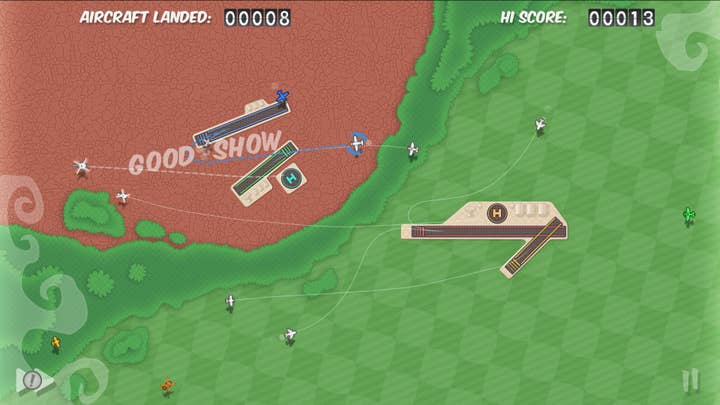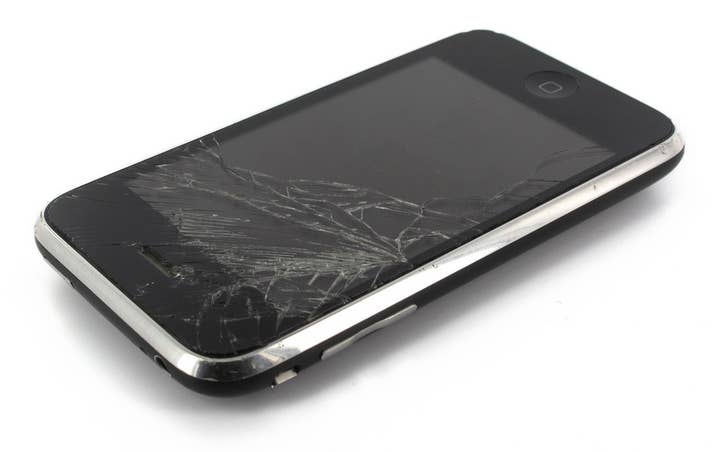We're losing the history of the App Store | Opinion
TouchArcade's editor-in-chief on the vanishing legacy of mobile games, and why he's leaving the site to save them
I've been obsessed with mobile gaming since the earliest days of handhelds - Tiger Electronics, Game Boy, portable consoles. When cell phones and smartphones arrived, that passion found its best home yet. The iPhone and App Store changed everything, but when they first launched in the late 2000s, none of us - player or developer - really knew what we were signing up for.
Unsurprisingly, I was all about gaming on the App Store. I downloaded nearly everything I could in the "Games" category. Hungry for more of these shockingly inexpensive and instantly accessible titles, I went searching for places to find what to download next. I discovered what was at the time a small website called TouchArcade and instantly became hooked. I began freelancing for the outlet, and before long took over as editor-in-chief. In the decade I led TouchArcade, we covered, in one form or another, nearly every noteworthy game released on mobile. We considered ourselves the tastemakers of mobile gaming.

As Apple charged ahead with new devices and versions of iOS, a growing trend seemed clear: With each leap forward, pieces of the App Store's history became lost. Keeping your games on the App Store requires regular maintenance - you have to support new screen sizes and resolutions, operating system compatibility fixes, processor architecture changes, and make other required tweaks as technology advances. Not to mention the $99 per year developer fee.
Eventually, many devs were forced to ask themselves just how much support a piece of software they sold for a dollar years ago really warrants. As the App Store became more crowded, inundating users with choice, diverting resources away from developing new games in order to update existing ones was too costly an option. So, to the disappointment of their fans, developers made difficult choices, often leaving old titles in a state of disrepair, half-working or broken entirely, until they were eventually removed from the App Store.
The largest purge of iOS games followed the release of iOS 11, which no longer supported 32-bit apps. We called this the "appocalypse," and in the blink of an eye, an unbelievable number of truly classic, critically acclaimed games became unplayable for all but those willing to hold off on updating to iOS 11. As time went on, we realized that TouchArcade had inadvertently become the archivists of massive swaths of iOS gaming history. Many of the best games ever released on the App Store now only exist in reviews or YouTube videos we published.
These games are effectively lost forever.
Vanishing Generations
Games preservation is a fight against inevitability: old tech is discarded for newer innovations while hardware naturally degrades and fails over time. PC and console systems and titles are often costly and challenging to save. But iOS games live in their own extra universe of complexity.
"Imagine if, due to decisions made by Nintendo, you were never able to play the original Super Mario Bros. ever again"
For security reasons, Apple makes it impossible to downgrade to different versions of iOS; to continue playing a 32-bit game that works on iOS 10 requires keeping an old device that has never been upgraded to iOS 11 and beyond. If you have a new device with iOS 11 or later pre-installed, you will never be able to play the old games you bought without the developer updating them first. There aren't even true iOS emulators that will let you run the raw iOS game files on your computer, similar to how an old console game might be played from its rom.
Imagine if, due to decisions made by Nintendo to move the NES platform forward, you were never able to play the original Super Mario Bros. ever again. You could never share that classic experience with your children, or anyone else who missed it the first time around. That's exactly what has happened, and continues to happen, with mobile gaming.
It can be easy to write off losing old games, particularly with the derisive attitude some have toward mobile. But those titles are relics of an important historical moment in our culture. There was a time when the App Store was one of the leading platforms for indie developers around the world.
Problems aside, one thing Apple stupendously succeeded in was giving developers the best access they ever had to a massive pool of customers. The App Store put the one-person studio on even footing with the industry giants, all for just $99 per year. Many game makers parlayed that early accessibility and success into much bigger projects, but even their early titles are simply gone in many cases. Even great games can vanish from the App Store incredibly quickly if the developer can't make business sense of the annual developer fee.

What's more, while those older among us fell into mobile gaming as it emerged, an entirely new generation exists today who have grown up with these experiences as their formative gaming memories. Those players can never revisit many of the games that first shaped their love of gaming. Titles like Firemint's Flight Control, an early and incredibly popular iOS game that hasn't been on the App Store for years. A game that effectively doesn't exist anymore outside of a few stories scattered around the internet.
Making the Old New Again
I've been incredibly vocal about preserving our digital history over the years, and it's distressing to think how many great, historically important (and simply fun!) games have been lost. That reality is my prime motivation in stepping down from TouchArcade: to raise awareness of this problem. So, what can we do to save the founding artifacts of our mobile culture?
The first step must be reigniting the financial furnaces of these old games, many of which launched at a time when the range of monetization options was limited. Today, in comparison, entire industries exist solely to devise creative monetization strategies for mobile games. That's not really a fight we can expect those older titles to win on their own. So finding ways for classic games to remain viable is as much a financial question as it is a technical one. We need methods to make these games worth the cost of updating if we expect them to survive.
I think there's a significant audience of gamers out there who are exhausted with the state of mobile. We're on the verge of mass-market consumer fatigue with carbon-copy free-to-play games. Today it seems even the most casual mobile gamers have their own story of over-paying for in-app purchases or otherwise feeling ripped off in a game. And there's general hatred for the obnoxious advertisements filling modern mobile games, especially for parents worried about kids being force-fed ads on sexy slot machines and war games.
It feels like there's a growing demand for something different, and I can't help but wonder whether the way forward for classic iOS games lies in answering it. Individually, these games may not be worth enough to justify keeping alive. But taken together, they offer an incredibly deep well of content (many with a straightforward beginning, middle, and end) that's just an update away from playability. A pay model that could leverage those combined strengths could allow those titles (and new ones) to live on through new generations. That would be a triumph on its own, of course, but it would also be a win for all of us who have grown into games one way or another and count ourselves part of this unique history we all share.
Eli Hodapp was Editor in Chief of TouchArcade from 2009 to 2019. He recently joined GameClub, a new company dedicated to bringing premium game experiences back to mobile, as its VP of Business Development.
